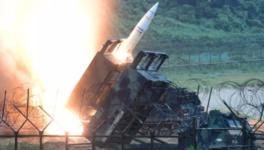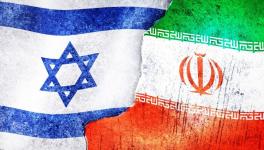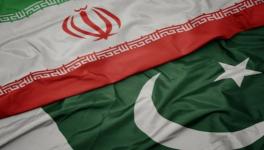The US and the Iraq question: Let the blame fall on one man, provided he is not an American
It is rather stunning to watch pundits in the US analyze the situation in Iraq. Imperial hubris prevails in all the discourse by Democrats and Republicans alike. The answer to the problems of Iraq has been simple: Nouri al-Maliki is the villain, and once he is removed and replaced by the client of Saudi and Western intelligence, Iyad Allawi, the vision of Bush in Iraq could be fulfilled. Maliki was compared to Stalin and will soon be elevated to the status of “yet another Hitler” in the Middle East. Imperial powers, especially the US, can’t fault their own wars and bombings and political manipulations. The natives are always at fault. That was the case in South Vietnam: it was this South Vietnamese general or that won who made “us lose Vietnam”. Technical reasons are sometimes invoked but the US is not at fault. How could the US be at fault: the worst military interventions and the most devastating can be categorized as “a liberation war” (by Republicans if the administration is Republican) and as “action of the policeman of the world” (by Democratic critics if the administration is Republican).
The US does not commit crimes although the reason why the US government did not maintain troop presence in Iraq, something that Maliki in fact wanted, is because the latter brazenly insisted that US troops would not be immune from prosecution on war crime charges in the event war crimes are committed. The US wanted an indefinite presence, as the US is indefinitely militarily present in more than 130 countries of the world.
As Iraq is increasingly descending into a brutal sectarian civil war, US pundits who had cheered the American invasion back in 2003 under the most false of premises are not reluctant to offer advice and to urge yet another military intervention. Little is said about the proposal by a sitting US senator at the time of the invasion who recommended a sectarian and ethnic division of Iraqi territory (Joe Biden). The US who now complains about Nouri Maliki wants to forget that the man was showered with praise by none other than Bush himself. He was picked under the political conditions of direct military occupation where the US had the final say of all key (and sometimes not-so-key) decisions.
Neo-conservative and liberal advocates of the American invasion of Iraq are not apologetic. They don’t see a link between the American war actions and political devastation of Iraq and the recent developments in Iraq and the region as a whole. They insist all the problems in Iraq are due to one unwise man, just as the killing of more than 150,000 people in Syria are all caused by the actions of one man. This is the way foreign policy is explained to the American public. And once the one man is removed, all will be well in that country. During Saddam Hussein, all the ills of the region were blamed on that one man, but after he was removed from power by the US, the American government ensured that what follows is even worse than what existed under Saddam, especially if you measure it by the number of people killed.

Image Courtesy: en.wikipedia.org
The US complains these days about the sectarianism and corruption of the Maliki regime when the sectarianism and corruption of the Iraqi political system was designed by the American occupation government in Baghdad. It divided the Iraqi people into the various ethnic and sectarian groups in order to facilitate their subjugation and occupation, and to prevent the formation of Iraqi national resistance to American occupation. This was the plan all along from the minute the US set up the lackey governing body, and distributed the seats according to the narrow sectarianism of the Lebanese political system.
The US created conditions in which the rise of sectarian movements became inevitable. And US close allies in the Gulf region were the sponsors, funders, and military suppliers of the various Jihadi groups. The US was satisfied when GCC regimes explained that the funds to Jihadi groups came from “private citizens” as if the notion of “private citizens” is allowed in such authoritarian regimes.
The US must be stunned with the developments in Iraq. The US government did not think that its policies of supporting, funding, and arming “moderate Syrian rebels” – whatever that means – would unleash the second wave of Jihadi proliferation (or third period of the mujahidin in Afghanistan). The US deceived itself and its public by insisting that there are categories of Syrian rebels and that some of them are quite “moderate” and “secular” and that some of them are actually led by Syrian feminists (Suheir al-Atassi’s name is always invoked perhaps because liberals in Congress like to think that their “rebels” are actually feminists). The entire narrative was bogus and had no roots in reality. The Free Syrian Army has now been exposed as nothing but a fictitious name intended for fundraising purposes.
The US may continue to express desire to extend more support for the Syrian “moderate” opposition but the fate of that opposition is now sealed not only by virtue of the advances of the Syrian regime, and not only due to the expansion of the power of the the Islamic State of Iraq and Syria (ISIS) at the expense of Nusra and its sisters, but also because of American fears. The images of ISIS fighters driving American-supplied Humvees must have caused panic in Congress, and must have reinforced all the early trepidation of Obama regarding Syria.
The US will once again ponder: how to undermine one’s enemies without producing worse enemies. The US did that in Afghanistan (twice) and once in Iraq and now in Syria. But this last adventure in Syria may prove to be more deadly than previous ones. The US basically allowed the GCC regimes (on its own behalf before the US tries to re-write history as it always does to absolve itself of responsibility) to arm and finance some of the most fanatical groups the world has ever known – all in the name of supporting a “revolution” – as if revolution and Wahhabiyyah ever mix.
Courtesy:english.al-akhbar.com
Dr. As’ad AbuKhalil is a professor of Political Science at California State University, Stanislaus, a lecturer and the author of The Angry Arab News Service. He tweets @asadabukhalil.
Disclaimer: The views expressed here are the author's personal views, and do not necessarily represent the views of Newsclick
Get the latest reports & analysis with people's perspective on Protests, movements & deep analytical videos, discussions of the current affairs in your Telegram app. Subscribe to NewsClick's Telegram channel & get Real-Time updates on stories, as they get published on our website.
























